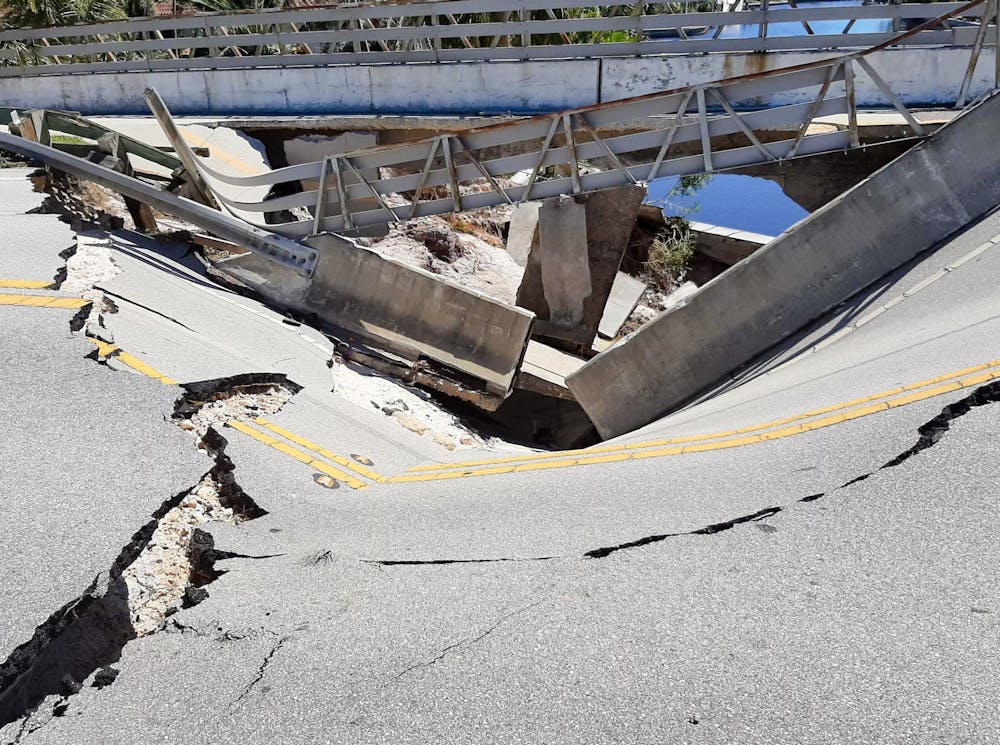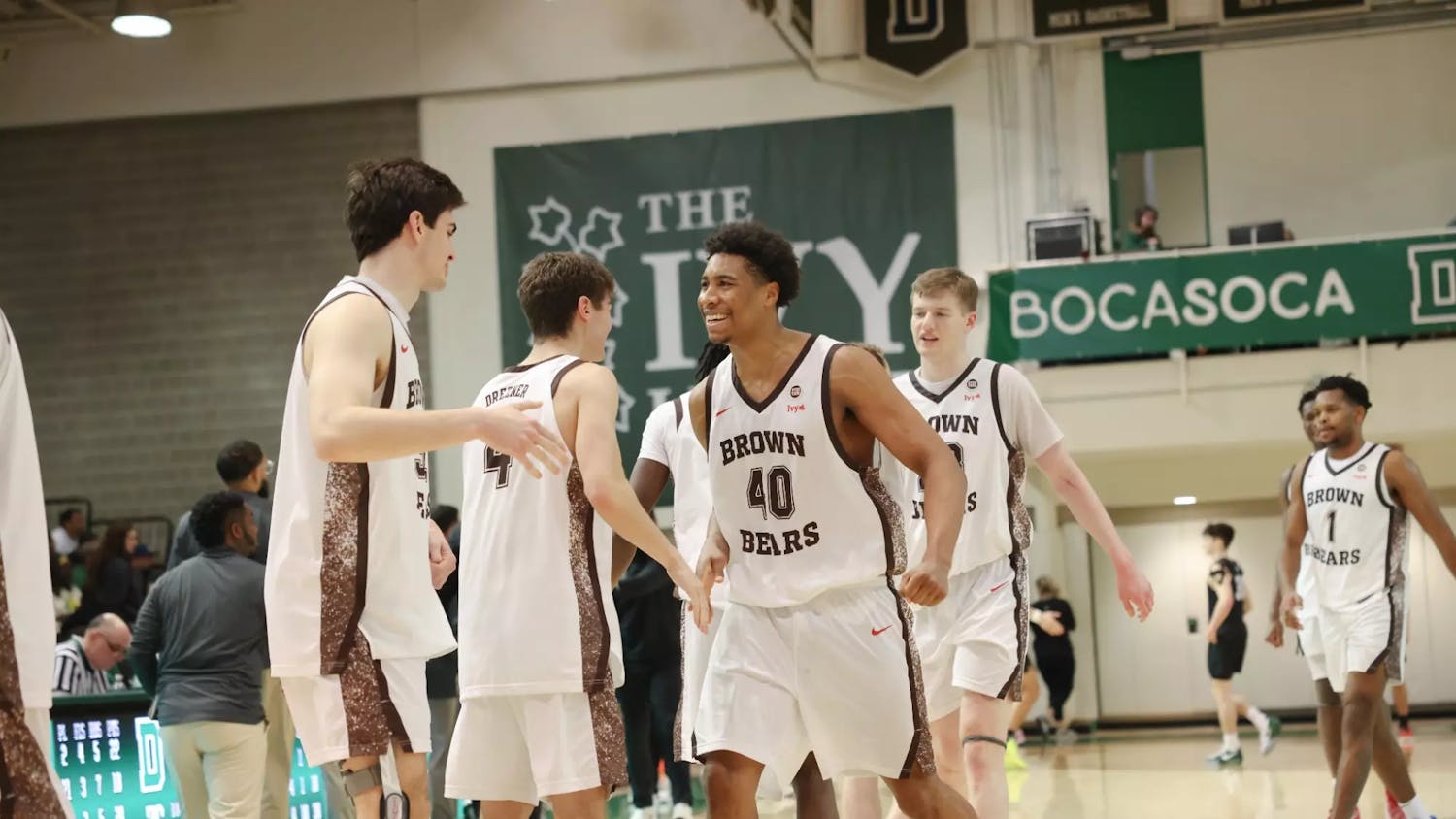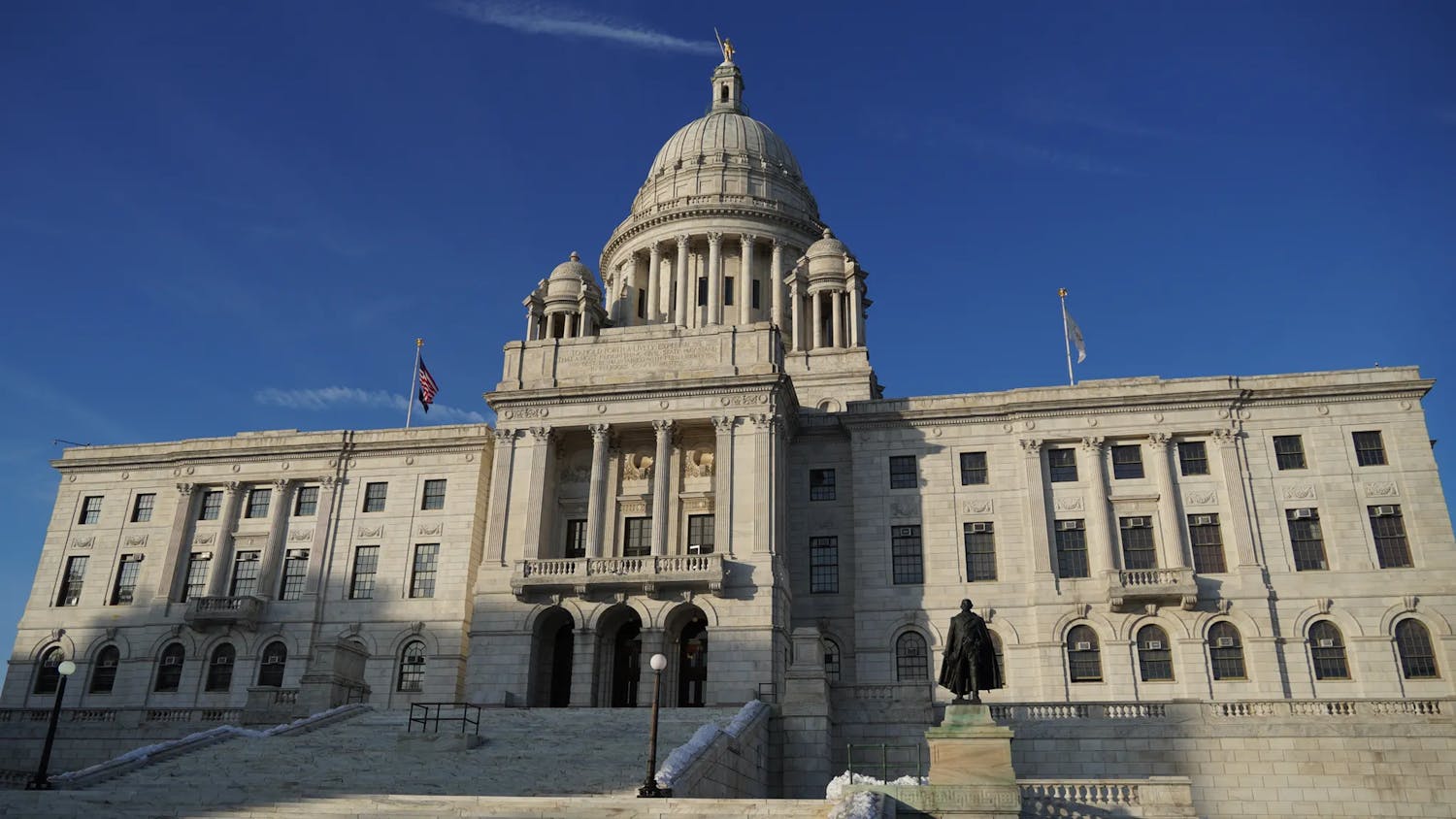Last Wednesday, Hurricane Ian made landfall in southwest Florida near the cities of Fort Myers and Cape Coral as a Category 4 storm, bringing winds of 150 mph and major storm surges up and down the coast. The hurricane left more than two million Florida residents without power and caused historic damage to coastal cities and inland communities throughout the state.
The storm’s strong winds and surges also destroyed important infrastructure on barrier islands and in coastal areas, complicating rescue and cleanup efforts and making it difficult for out-of-state family members to get in contact with their loved ones.
For five students from coastal cities in southwest Florida hit hard by Hurricane Ian, watching from Rhode Island proved stressful as their families braved a historically powerful hurricane down south. The Herald spoke with these students about the toll the hurricane has taken and how it has affected them from afar.
“You feel completely powerless to help them and you really want to but there is nothing you can do,” said Arjun Singh ’23, whose family rode out the hurricane at their home in Fort Myers. “It was absolutely terrifying.” Four days after the storm hit, Singh’s family was still without power or cell service, which made it hard to stay in contact.
For Singh, the scariest part of the storm was when the eyewall hit Fort Myers on Wednesday. His texts and calls to family stopped delivering, and “that's when the panic really set in,” he said.
Alex Ivanchev ’25 was unable to contact his family for nearly 12 hours Wednesday after they lost internet service during the storm. Ivanchev is from Venice, between Fort Myers and its northern neighbor Sarasota, and he said that a part of his home’s roof was torn off while his parents waited out the storm inside. Students also shared the harrowing experiences of family members who weathered the storm along the coast. Kate Kupsaw ’24.5 said that her grandfather, who lives in Fort Myers, had to evacuate his home after it began to flood, wading through four feet of water to reach his neighbor’s home.
Kupsaw originally hails from Sanibel Island, a barrier island of 6,500 people off the coast of Fort Myers that saw extensive damage from the storm. Her dad returned to the island after evacuating to Miami and told her that most of the island was “unrecognizable,” Kupsaw said.
Floodwaters climbed from 10 to 12 feet based on the marks her dad observed on houses, she said. There were four fatalities on the island as a result of the storm, City Manager Dana Souza told the press.
“I’m not sure exactly who those people are,” Kupsaw said, “and if I know them.”
A stretch of the causeway that connects the island to the mainland is also broken, while houses across the island face severe water and wind damage. According to Kupsaw, her family might not be able to return to the island for anywhere from six months to a year and a half.
Alyssa Steinbaum ’23, who is from Sarasota, said that witnessing the hurricane from so far away felt strange and confusing. Steinbaum noted how bizarre it was “seeing pictures of the damage to places I (knew) growing up.”
Ivanchev agreed, noting that “there's some level of separation that makes me feel like this just isn't real,” he said. “Because I'm not really experiencing it first-hand.”
Steinbaum said she wishes she could be in Sarasota to help her family get everything “back in order” after the hurricane and “to volunteer or donate blood … or do something that could help more directly.”
Singh also said he wished he could be back in Fort Myers to help his mother take care of his elderly grandparents. He will fly home next weekend and plans to participate in rescue and cleanup efforts with some of his hometown friends, he said.
Logan Szittai ’24 hails from Naples, south of Fort Myers, and days after the hurricane touched down, his family still did not have access to strong cell service at their home. He has spent the past days acting as his family’s connection to the internet — sharing updates about Naples over the phone and helping them with tasks like rebooking a flight for his sister.
“Whenever they need serious internet access … I’m on it,” Szittai said.
All of the students interviewed agreed that it was difficult to focus on their schoolwork as the hurricane touched down back home. Singh said that he struggled to focus in his classes, as he was “glued to the news” coming out of Florida for several days.
Ivanchev also found it difficult to stay present in his classes as the storm passed over Venice. “I couldn't really focus as much” on schoolwork, he said. “In the back of my mind, I'm like, ‘Oh my goodness, there's a hurricane literally barreling through my city, and I really can't do anything about it.’ ” Ivanchev spent last Wednesday trying to reassure himself that everything was fine, even though he had no way of contacting his family for confirmation.
Szittai said that he struggled to balance his schoolwork with the stress of staying in contact with his family throughout the storm. He had to ask for a handful of extensions on assignments, but said that his professors were largely accommodating of his situation.
All students from the state of Florida received an email from the University that offered them assistance through Student Support Services. Student support deans can “serve as a sounding board, help to explore options and connect you to resources and help figure out next steps” in the wake of Hurricane Ian, wrote Katie Boin, senior associate dean and director of Student Support Services, in the email, which was reviewed by The Herald.
All of the students interviewed said that they appreciated the gesture from the University. Kupsaw spoke with Student Support Services over the phone, and said that they were “really understanding and very generous in the accommodations they are giving us.”
But despite the University’s support, the extreme nature of the hurricane is hard to process or navigate, Kupsaw said. Most of her classmates at Brown have never experienced anything like this, she said, so they “can't really grasp the intensity of it.”
Kupsaw recommended donating to relief efforts as a means of supporting her community and others across Florida. “It would be major for my community,” she wrote in a message to The Herald, “as these efforts will be ongoing for months.”

Sam Levine is a University News editor from Brooklyn, New York covering on-campus activism. He is a senior concentrating in International and Public Affairs.





